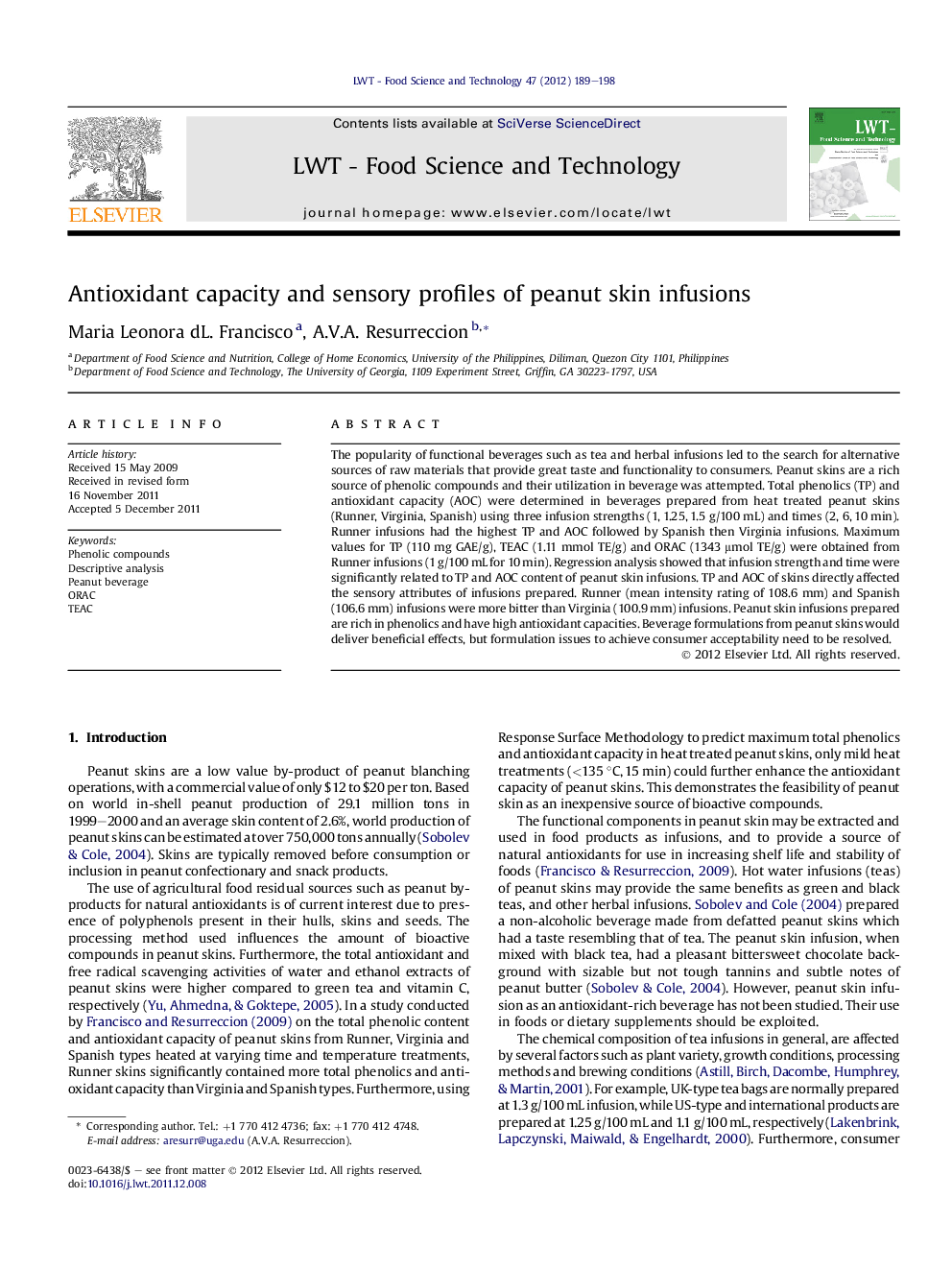| Article ID | Journal | Published Year | Pages | File Type |
|---|---|---|---|---|
| 6405242 | LWT - Food Science and Technology | 2012 | 10 Pages |
The popularity of functional beverages such as tea and herbal infusions led to the search for alternative sources of raw materials that provide great taste and functionality to consumers. Peanut skins are a rich source of phenolic compounds and their utilization in beverage was attempted. Total phenolics (TP) and antioxidant capacity (AOC) were determined in beverages prepared from heat treated peanut skins (Runner, Virginia, Spanish) using three infusion strengths (1, 1.25, 1.5 g/100 mL) and times (2, 6, 10 min). Runner infusions had the highest TP and AOC followed by Spanish then Virginia infusions. Maximum values for TP (110 mg GAE/g), TEAC (1.11 mmol TE/g) and ORAC (1343 μmol TE/g) were obtained from Runner infusions (1 g/100 mL for 10 min). Regression analysis showed that infusion strength and time were significantly related to TP and AOC content of peanut skin infusions. TP and AOC of skins directly affected the sensory attributes of infusions prepared. Runner (mean intensity rating of 108.6 mm) and Spanish (106.6 mm) infusions were more bitter than Virginia (100.9 mm) infusions. Peanut skin infusions prepared are rich in phenolics and have high antioxidant capacities. Beverage formulations from peanut skins would deliver beneficial effects, but formulation issues to achieve consumer acceptability need to be resolved.
⺠We determined phenolics and antioxidant capacity in beverages from heated peanut skins. ⺠Peanut skin infusions had concentrations highest in Runner followed by Spanish then Virginia. ⺠Phenolic and antioxidant concentration were related to infusion strength and preparation time. ⺠Phenolic and antioxidant level in the skins directly affected the sensory attributes of infusions. ⺠Runner and Spanish infusions were more bitter than Virginia infusions.
